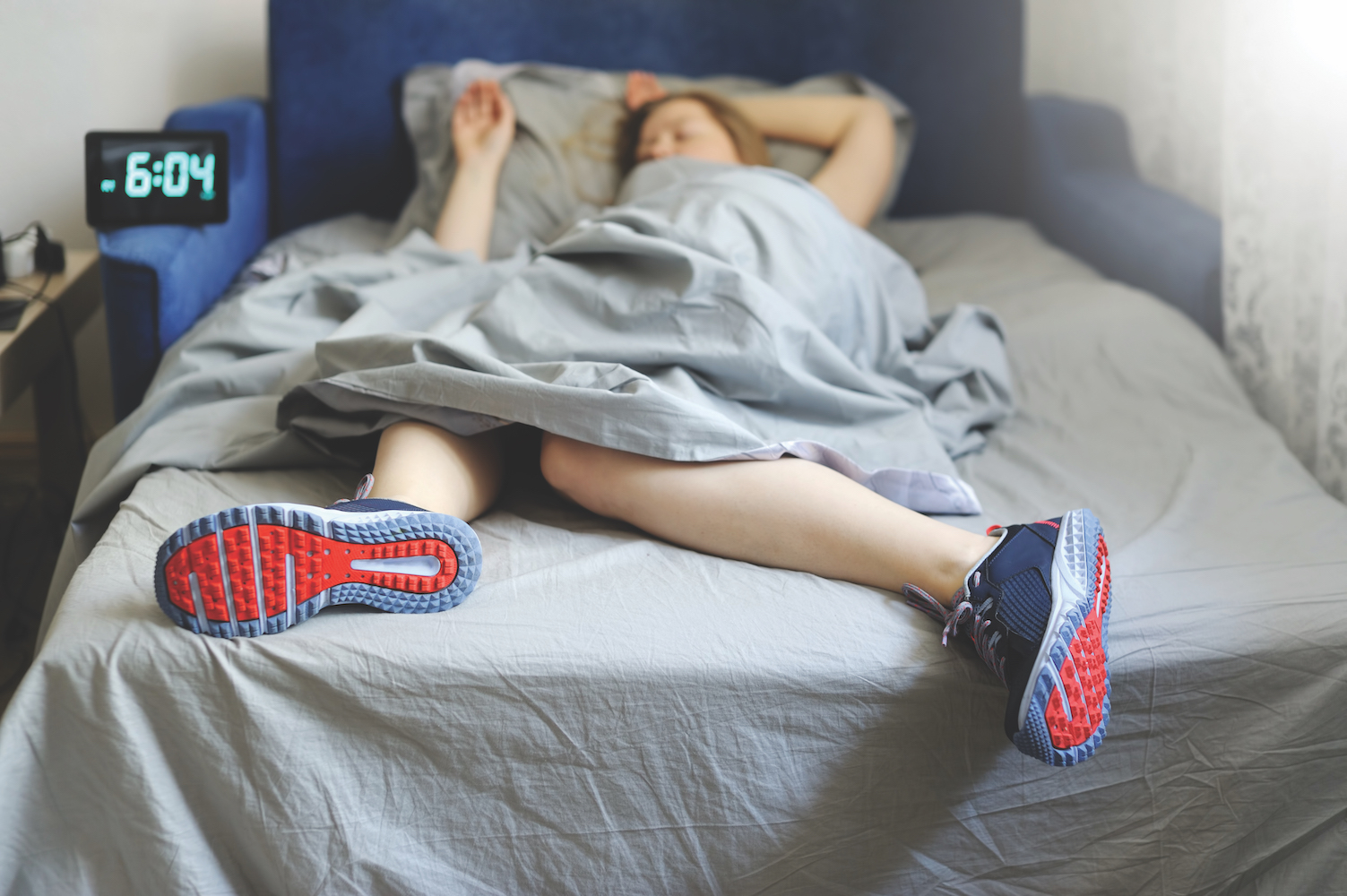

Perhaps the most important factor in this dilemma is to listen to your body. Monitoring everyday aches and knowing the difference between them and more serious twinges or pains is key. If you’re indeed just struggling, but not hurt, what can you do? Sports psychologists suggest that on the days you’re feeling overwhelmed by your workout, you can turn the obstacle into a challenge by testing how much you can get accomplished when feeling out of your rhythm. You almost have to view these days as separate workouts from the ones when you are feeling good. Eventually, you’ll be able to increase the intensity you put forth on days when you’re feeling lousy and have stellar workouts regardless. As active women know, mental strength is just as important as physical strength when it comes to training consistently. What mental techniques can you implement to push through the not- so-stellar days? We suggest putting appropriate lters on the “noise” in your head. For instance, if you’re running on the treadmill, be sure to do things that help you to stay loose, fluid and on your rhythm. Some athletes use a mantra like “down” every time their foot hits the ground, while others use motivational self-talk. Planning out not only the workout but also the whole day helps to develop a plan of action for the gym. The mental side of training is 80 percent of the battle. Once my plan is set, take at least 10 minutes in the morning to meditate or take yourself through a short yoga flow; both always help in clearing the headspace and bringing a sense of peace to carry yourself through the day. Yogic breathing could help people for whom antidepressants don’t work well enough, suggests a recent study. Two months of Sudarshan Kriya yoga, a breathing- based meditation practice, significantly lessened symptoms of severe depression and anxiety in subjects compared to a control group that experienced no changes, wrote the authors of the paper published in the Journal of Clinical Psychiatry. You should also know what’s important. Maybe you feel tired or frustrated. Now what? It’s up to you to process this information and gure out if it’s really important. Most often, you can feel tired or frustrated and have everything you need to be successful. So carry on. But if you just can’t break through the block, don’t throw in the towel completely. Some exercise is better than none at all, and don’t beat yourself up. Remember that fitness is a lifelong journey. Identify why your workout didn’t go according to plan and get back to said plan tomorrow — even superhumans have down days! People who put away sodas and energy drinks on the reg are more likely to get inadequate sleep, researchers at the University of California, San Francisco, concluded in a survey of 18,000 adults. In their paper, they noted that participants who usually slept about five hours a night, which is considered “short sleep,” drank 21 percent more caffeinated, sugary beverages than survey respondents who get seven to eight hours of shut-eye. Why is short sleep so bad for you? Previous studies have linked it with higher blood pressure and increased levels of stress and in ammation in the body, and recent research at the University of Illinois at Chicago also suggests that chronic abbreviated sleep can result in poorer kidney function. Although the UCSF researchers noted an association between sugary beverage consumption and short sleep, the research team isn’t sure which causes which. They suspect that there’s a cyclical effect, however — drinking sugary beverages makes sleep more dif cult, creating a need for more energy drinks to get through the following day and more trouble sleeping at night. Another caveat: The survey data regarding sleep patterns was self-reported, so it might not be super accurate, the authors noted. Sleep monitors or electroencephalograms would give scientists a clearer picture about sleep duration and quality and help them figure out how to help people get better sleep — and subsequently help curb their reliance on sugar-bomb beverages.
When To Push Through
Tactics: Boosting Your Mind
Energy Drinks Are Stealing Your Sleep
